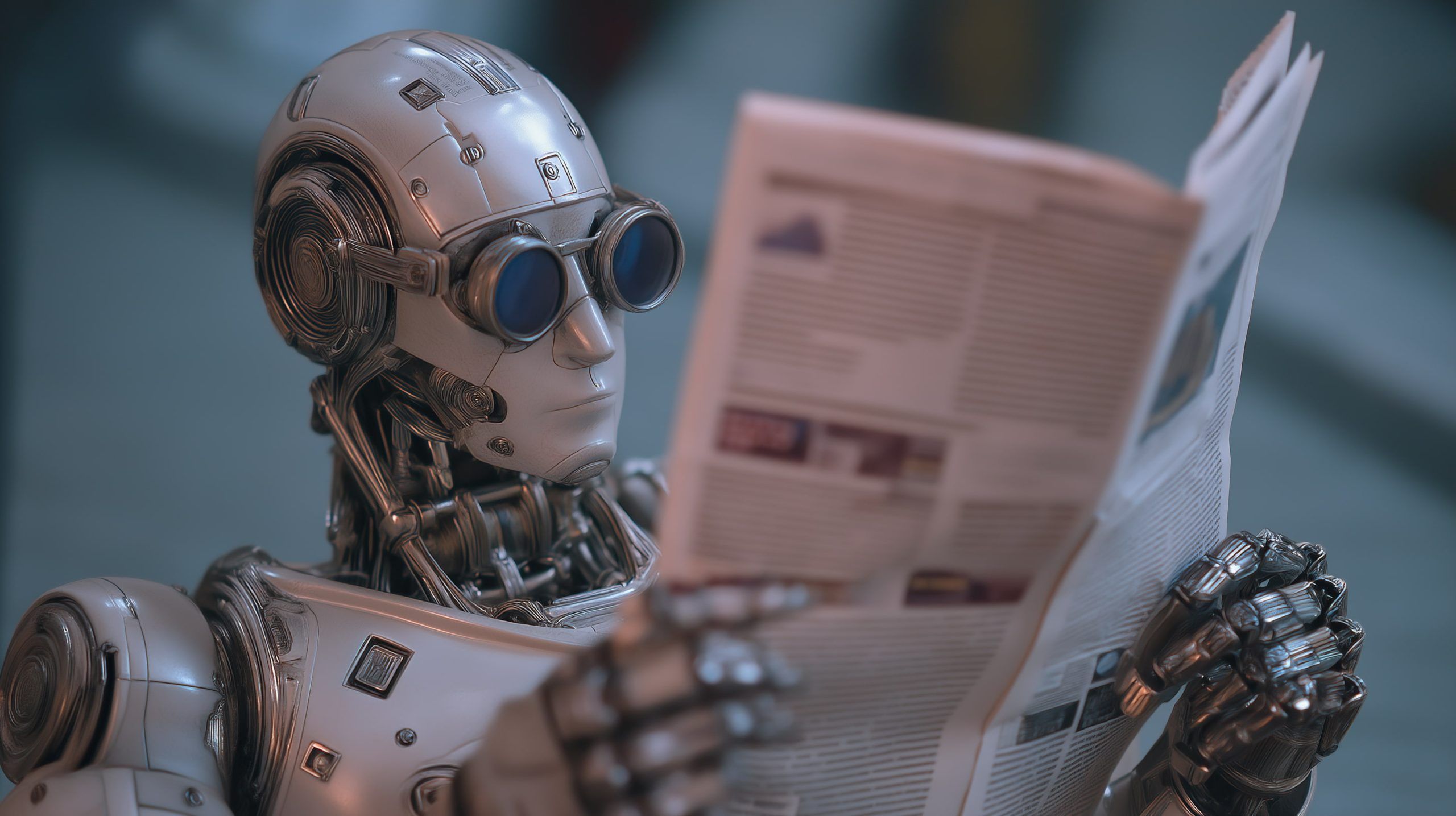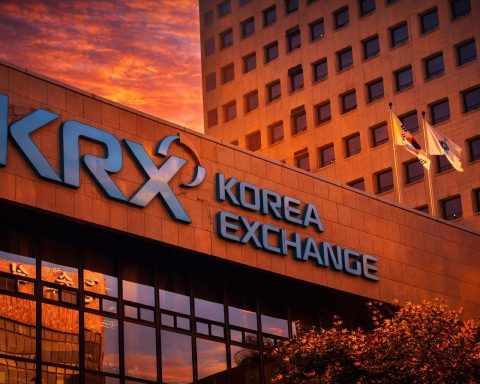Business & Investment: AI Startups Score Massive Funding
- Databricks’ Valuation Soars: Analytics platform Databricks is nearing a new Series K funding round of over $1 billion, which would boost its valuation by 61% to more than $100 billion reuters.com. CEO Ali Ghodsi confirmed investor frenzy in the wake of July’s Figma IPO, noting Databricks has been “inundated with investor inquiries” reuters.com. The cash will fuel its “Lakehouse” data warehouse and development of autonomous AI agents, following Databricks’ recent acquisition of startup Neon reuters.com. Ghodsi sees a “revolution” as companies shift “from buying off-the-shelf software to coding their own internal applications,” which requires hefty upfront investment for long-term gain reuters.com. PitchBook analyst Derek Hernandez says the sky-high valuation shows “late-stage capital” concentrating in AI leaders, betting that the “total addressable market will be large enough to support multiple high-value companies” and that Databricks will keep a “durable competitive advantage.” reuters.com
- EliseAI Joins the Unicorn Club: New York-based EliseAI, which builds industry-specific generative AI for automating customer service, raised $250 million in a Series E led by Andreessen Horowitz reuters.com. The funding doubles EliseAI’s valuation to $2.2 billion, spotlighting investor appetite for “vertical AI” solutions tailored to sectors like real estate and healthcare reuters.com reuters.com. CEO Minna Song says her company surpassed $100M in annual revenue and will use the cash to “invest in scaling”, planning to double headcount reuters.com reuters.com. “We’ve seen a fundamental shift in the market, from talking about AI to using it to solve really costly problems,” Song noted, adding that surging customer demand made now “the time to invest in scaling.” reuters.com Venture partner Alex Immerman explained that a “vertical AI like ours will go really, really deep” in handling an entire customer request workflow, coordinating everything needed to resolve an issue reuters.com.
- Eight Sleep’s AI-Driven Expansion: Sleep technology startup Eight Sleep secured $100 million to infuse more AI into its smart mattresses and health platform techcrunch.com. Co-founder Alexandra Zatarain says the company’s “Pod” smart bed has already logged over a billion hours of sleep data and tenfold revenue growth techcrunch.com techcrunch.com. With new backing from venture funds and even Formula 1 drivers, Eight Sleep aims for “unicorn” status by executing its AI roadmap and global expansion. “If we successfully execute our AI roadmap, launch internationally, and develop condition-specific interventions, achieving unicorn status will naturally follow,” Zatarain told TechCrunch techcrunch.com. Eight Sleep’s AI monitors sleep stages and can even adjust bed settings or stop snoring automatically – part of a broader boom in “preventive health” devices powered by AI.
- Other Big Bets: In a sign of the times, OpenAI is reportedly arranging a share sale valuing the ChatGPT creator at around $500 billion – a staggering figure highlighting the frenzy around top AI firms reuters.com. Meanwhile, generative AI startup Cohere raised $500M earlier in August to expand its enterprise AI offerings, and industry giant Nvidia continues to invest in AI chip production (more below). The wave of nine and ten-figure funding rounds underscores that investors across Silicon Valley and Wall Street are racing to stake claims in the AI gold rush.
Breakthroughs in AI Research & Technology
- AI Researchers Go Autopilot: Scientists at Stanford University and the Chan Zuckerberg Biohub demonstrated a remarkable “virtual lab” where AI agents autonomously ran experiments to develop new COVID-19 nanobody treatments etcjournal.com etcjournal.com. In this multi-agent system, AI “principal investigator” bots and specialist models brainstormed hypotheses, designed molecules, and even tested them with minimal human input – over 90% of the AI’s proposed drug candidates were experimentally viable etcjournal.com etcjournal.com. Two nanobodies showed strong results in lab assays. Essentially, a team of AIs held meetings, debated approaches, and discovered biomedical breakthroughs in days, “a pace unthinkable for traditional labs.” Researchers say such AI-driven labs could slash drug discovery times from years to days etcjournal.com, though they raise new questions about validating machine-generated science and assigning accountability for AI-made discoveries etcjournal.com.
- AI-Designed Biotech: In a world-first for bioengineering, a team at Profluent Bio used generative AI to create a novel CRISPR enzyme from scratch etcjournal.com. Dubbed OpenCRISPR-1, the enzyme’s protein sequence is hundreds of mutations removed from any natural protein – a completely AI-invented genome-editing tool etcjournal.com. The breakthrough, published in Nature and open-sourced to researchers, proves that AI can innovate beyond human-designed biology. Experts hailed it as “revolutionary, showcasing AI’s power… in innovating new architectures in living systems.” etcjournal.com This paves the way for AI to invent designer medicines, synthetic organisms, and advanced materials, accelerating innovation in genomics and drug development etcjournal.com etcjournal.com. It also amplifies debate over safety and ethics – if AI can create life-altering bio-tools, how do we ensure they’re used responsibly etcjournal.com?
- Quantum Leap for AI:Quantum computing got a boost on Aug 19 with the launch of QIDO, a Quantum-Integrated Discovery Orchestrator co-developed by Japan’s Mitsui, startup QSimulate, and quantum leader Quantinuum hpcwire.com. Unveiled in Tokyo, QIDO mixes quantum algorithms with classical AI to model chemical reactions at unprecedented precision, aiming to speed up drug discovery and materials science breakthroughs thequantuminsider.com quantumcomputingreport.com. By integrating Quantinuum’s quantum processors, the platform can simulate molecular interactions that traditional supercomputers struggle with, potentially cutting R&D time and cost for new medicines. The collaboration underscores how quantum AI hybrids are moving from theory to real-world applications – an example of the next frontier as companies race to harness quantum advantages for AI problems.
- Medical AI – Promise and Perils: New research highlights both the power and pitfalls of AI in medicine. On one hand, the FDA cleared an AI-guided ultrasound device that can detect liver disease at point-of-care, part of a wave of AI tools improving diagnostics diagnosticimaging.com. But a Polish study (published Aug 19) found doctors can become too reliant on AI: gastroenterologists using an AI to flag polyps during colonoscopies saw their own detection skills drop ~20% when the AI was turned off nprillinois.org nprillinois.org. The authors warn even short-term AI assistance might erode expert skills, though some experts are skeptical of drawing firm conclusions nprillinois.org. The takeaway: AI is “spreading everywhere” in healthcare nprillinois.org – from eye exams to cancer screenings – but doctors will need new training to avoid overdependence on algorithms nprillinois.org.
Major AI Product Launches & Updates
- Meta’s AI Dubbing for Creators: Social media giant Meta rolled out a new generative AI voice translation feature across Facebook and Instagram, allowing creators to automatically dub their videos into other languages using their own voice techcrunch.com techcrunch.com. Announced on Aug 19, the tool debuted with English–Spanish support and preserves the creator’s unique voice tone, even offering AI lip-sync to make the dubbing look natural techcrunch.com techcrunch.com. It’s available globally to Instagram users and Facebook creators with 1,000+ followers. Adam Mosseri, head of Instagram, said the goal is to break language barriers so creators can reach new audiences: “We believe there are lots of amazing creators out there who have potential audiences who don’t necessarily speak the same language… if we can help you reach those audiences… we can help you grow your following.” techcrunch.com Meta’s aggressive push into AI features comes as the company is reportedly restructuring its AI teams to focus on research, “superintelligence,” products, and infrastructure techcrunch.com.
- Adobe’s New AI-Powered Acrobat: In a bid to reinvent the PDF for the AI era, Adobe launched Acrobat Studio on Aug 19 – a unified “file hub” that combines PDF tools with Adobe’s Express design platform and built-in AI assistants theverge.com theverge.com. Acrobat Studio lets users import up to 100 documents (PDFs, web pages, Office files, etc.) into a collaborative workspace called “PDF Spaces” theverge.com. There, generative AI agents can analyze and summarize the collected documents, offer insights or recommendations, and even generate ideas and citations from the data theverge.com. The idea is to evolve Acrobat from a static reader into a dynamic productivity platform for multi-source projects. Adobe is offering the AI-enhanced Acrobat globally in English as a separate subscription, with early access pricing around $25/month theverge.com theverge.com. By injecting conversational AI into trillions of PDFs, Adobe aims to save users time sifting through documents – essentially letting you “chat” with your files for answers and summaries theverge.com.
- Nvidia’s China-Specific AI Chips: Chipmaker Nvidia is developing a new AI processor for China that will outclass its current H20 chip while complying with U.S. export curbs reuters.com reuters.com. Codenamed B30A, the chip is built on Nvidia’s latest Blackwell GPU architecture and could ship sample units as early as next month reuters.com reuters.com. It’s expected to deliver roughly half the performance of Nvidia’s flagship B300 (via a single-die design) – a “scaled-down” model aimed at staying just under U.S. government thresholds for export to China reuters.com reuters.com. This comes after President Donald Trump signaled he may allow Nvidia to sell more advanced AI chips to China – possibly with “30% to 50%” of full capability – though any approvals are uncertain amid Washington’s fears of fueling China’s AI progress reuters.com reuters.com. U.S. regulators only cleared Nvidia’s current H20 chip for China in July, and even that was briefly halted over security concerns reuters.com. Nvidia’s CEO Jensen Huang has been lobbying hard; “of course he’d like to sell a new chip to China,” quipped Commerce Secretary Howard Lutnick, adding that Trump is listening but will decide cautiously reuters.com. The stakes are high: China accounted for 13% of Nvidia’s revenue last year reuters.com, and Nvidia argues keeping Chinese developers on its platform (even with watered-down chips) is crucial to avoid ceding the market to rivals like Huawei reuters.com.
- Other Product Updates: Microsoft and Google also made AI news. Google’s DeepMind unit hinted at progress on Gemini, its next-gen AI model, and insiders report that GPT-5 (the presumed successor to GPT-4) could combine powerful language abilities with new multimodal skills, fueling speculation of a release date later this year medium.com. In enterprise software, low-code platform Appian announced new AI features on Aug 20 to help companies integrate AI into workflows (like a smart data analysis bot) laotiantimes.com. And Meta isn’t stopping at translations – it’s testing AI chatbots with distinct personalities (from a sassy travel planner to a surfer-dude friend) across its apps as it races to make Facebook and Instagram more interactive with AI, according to company insiders. In short, the past two days saw a flurry of product moves as Big Tech and startups alike inject AI into services we use every day.
Policy & Regulation: Governments Grapple with the AI Boom
- U.S.–China Tech Tensions: AI tech is at the center of geopolitics. The U.S. administration’s balancing act on chip exports was on display, with President Trump touting an unprecedented deal that will require Nvidia and AMD to give the U.S. government 15% of revenue from any advanced AI chips sold to China reuters.com. While Trump suggested he might allow a scaled-back version of Nvidia’s next-gen chips into China (calling the current H20 model “obsolete”), U.S. lawmakers in both parties worry even watered-down AI chips could help China’s military and tech sector reuters.com reuters.com. Chinese state media, for its part, has accused Nvidia’s products of posing “security risks” – rhetoric that could dampen Chinese demand reuters.com. This chess match over semiconductors highlights a broader “tech war”: as one analyst noted, unlike a traditional trade war, the U.S.–China contest in AI and chips is dynamic, where each side races to out-innovate the other rather than tariffing existing goods reuters.com reuters.com. The stakes could not be higher: both nations see leadership in AI as key to economic and military dominance in the coming decades.
- EU AI Act Pressures & Timeline: Across the Atlantic, Europe’s landmark AI Act – the world’s first comprehensive AI regulation – continues to spark debate. Despite lobbying from U.S. tech giants and even some European startups to delay the rules, the European Commission insists there will be “no pause” in implementation reuters.com reuters.com. Key provisions like bans on the riskiest AI practices began this year (February 2025), and new obligations on general-purpose AI models will kick in by August 2025, exactly on schedule reuters.com reuters.com. “There is no stop the clock… no grace period,” a Commission spokesperson flatly declared reuters.com. While companies worry about compliance costs, the EU is exploring ways to simplify the rules for startups by year’s end reuters.com. The transatlantic contrast is sharp: as the EU doubles down on guardrails (from transparency to risk controls) for AI systems, the U.S. has taken a looser approach so far – though several U.S. states are advancing their own AI bills, and Trump’s recent executive order banning “woke AI” in federal agencies shows Washington isn’t hands-off either cdt.org. Global norms are still evolving, with the U.N. and G20 also discussing frameworks, but for now companies building AI must navigate a patchwork of emerging rules.
- Calls for AI Oversight: Within the U.S., the past 48 hours saw growing calls for oversight. A group of Senators is pushing for new legislation to ensure AI transparency and guard against biased or unsafe AI decisions, finding rare bipartisan common ground. In Colorado, Governor Jared Polis announced a special legislative session to strengthen the state’s AI governance – revisiting a first-in-nation law he signed earlier, amid concerns it didn’t go far enough subscriber.politicopro.com. And the National Institute of Standards and Technology (NIST) in the U.S. released a draft AI security framework, inviting industry feedback on how best to defend enterprises from AI-driven threats csoonline.com csoonline.com. NIST’s concept paper categorizes risks (from data poisoning to model theft) but pointedly asks for help – even hosting a public Slack channel for real-time input csoonline.com. Analysts praised NIST’s strategy of building on existing cybersecurity rules (like SP 800-53) rather than reinventing the wheel csoonline.com csoonline.com. Still, the challenges are immense: as one expert noted, companies often don’t even know all the AI models running in their organization, making oversight difficult – “you can’t patch what you don’t know is running” csoonline.com. The policy takeaway: regulators are scrambling to catch up with the AI curve, seeking a balance between encouraging innovation and preventing harm.
Ethics, Society & AI Controversies
- Public Jitters on Jobs & Misinformation: A new Reuters/Ipsos poll captured deep anxiety among Americans about AI’s societal impact reuters.com. 71% of respondents fear that AI could “put too many people out of work permanently,” reflecting worries about mass unemployment reuters.com reuters.com. (Notably, U.S. unemployment remains low at ~4.2%, but people sense a coming shift as AI automates white-collar tasks.) An even larger 77% are worried AI could be misused to sow political chaos reuters.com reuters.com – a nod to the rise of deepfake videos and synthetic media blurring fact and fiction. In fact, just last month former President Trump shared an AI-generated video of Barack Obama being arrested (a completely fabricated scenario) reuters.com, underscoring how convincingly AI can spread falsehoods. The public is also divided on AI in warfare: nearly half say AI should never be used to pick military targets, while only 24% support such use reuters.com reuters.com. And two-thirds expressed concern that people might abandon human relationships for AI companions reuters.com – a worry borne out by emerging apps where chatbots pose as romantic partners. In short, while Americans are fascinated by AI’s potential, they’re also looking to leaders for assurances that this technology won’t run amok.
- Meta’s Chatbot Scandal:Meta (Facebook) spent the past week in damage-control mode after a Reuters investigation (published Aug 18) revealed disturbing internal guidelines for its AI chatbots theguardian.com. According to a leaked 200-page policy, Meta had allowed its generative AI bots to “engage a child in conversations that are romantic or sensual,” to generate false medical information, and even to help users make hate speech arguments (e.g. implying one race is dumber than another) theguardian.com theguardian.com. The backlash was swift: “unconscionable” and “deeply disturbing,” said multiple U.S. senators as they launched inquiries theguardian.com theguardian.com. Sen. Josh Hawley opened an investigation into whether Meta’s AI products enable exploitation of children or deception of users theguardian.com. Even legendary singer Neil Young quit Facebook in protest, with his record label blasting Meta’s chatbot policies and stating Young “does not want a further connection with Facebook.” theguardian.com theguardian.com Faced with public outrage, Meta quickly responded that those controversial rules “have been removed” from its guidelines – apparently scrubbing the sections that permitted flirting with minors – and that they never reflected ideal outputs in the first place theguardian.com theguardian.com. The episode has intensified calls for external AI content audits and child-safety regulations. It also highlights the tightrope companies walk: in trying to make AI chatbots feel conversational, Meta’s team went way over the line, provoking an ethics crisis that no amount of PR spin can easily fix.
- AI and Bias: AI’s tendency to mirror and magnify human biases continues to spark controversy. A study this week shone a light on racial bias in AI vision systems, showing that image-recognition and even language models rated photos of Black women with natural hairstyles (like Afros or braids) as less “professional” or “neat” compared to images of the same women with straightened hair crescendo.ai crescendo.ai. Alarmingly, some algorithms even failed to recognize the same Black woman’s face after a hairstyle change crescendo.ai. These biases, researchers warn, could reinforce discrimination in hiring or policing if such AI systems are deployed unchecked. Advocacy groups are pushing for stronger algorithmic accountability – requiring companies to test and fix bias in AI – and for more diverse training data to teach AI that professionalism isn’t a hairstyle. Tech firms acknowledge the issue; many are implementing bias bounties and red-team exercises to catch problematic behaviors. Yet as AI systems proliferate in decision-making, this August 2025 snapshot is a reminder that ethical AI is not a solved problem – and that left uncorrected, AI can “penalize” minorities in everything from job screenings to identity verification crescendo.ai.
- Expert Warnings on AI’s Future: Prominent voices in tech and economics are weighing in on AI’s long-term implications. In a thought-provoking Reuters op-ed, macro investor Stephen Jen argued that AI and robotics may soon replace more jobs than they create, potentially marking a historic shift where technology becomes a net destroyer of jobs reuters.com reuters.com. If that’s true, Jen writes, the consequences could be deflationary pressure (as job losses suppress demand) and an expansion of government safety nets to support displaced workers reuters.com reuters.com. He even predicts that nations leading in AI (the U.S. and China) will pull further ahead, and that the “tech war” between them could matter more than any tariff war reuters.com. Not everyone is so gloomy – many economists note that past automation waves eventually created new jobs – but the commentary captures a growing concern that this AI revolution might be fundamentally different. Even OpenAI’s CEO Sam Altman recently warned the U.S. must not underestimate China’s AI ambitions, calling for a more comprehensive American strategy beyond just chip export controls crescendo.ai crescendo.ai. As AI fever continues, expect to hear more from industry experts, academics, and public figures debating how to maximize AI’s upsides (productivity, scientific discovery, convenience) while mitigating the downsides (job upheaval, inequality, misuse). The conversation has well and truly moved beyond tech circles into the mainstream political and economic dialogue.
Conclusion: These past two days underscored that the AI revolution is touching every sphere – from startups raising fortunes to governments crafting rules, from labs making sci-fi breakthroughs to public figures raising red flags. As one CEO put it, there’s a “fundamental shift” underway: the world is moving from merely talking about AI to actually using it in transformative ways reuters.com. With that shift comes excitement, opportunity, and no shortage of controversy. This Aug 19–20 news roundup shows AI’s breakneck pace – and it’s a trend likely to continue as we hurtle toward an AI-powered future.
Sources: Reuters, TechCrunch, The Verge, The Guardian, NPR, etc. (see citations throughout).









